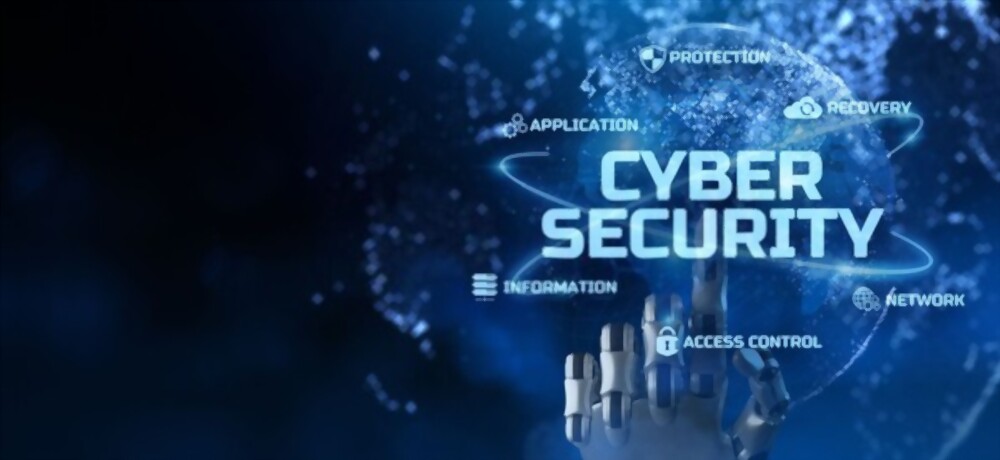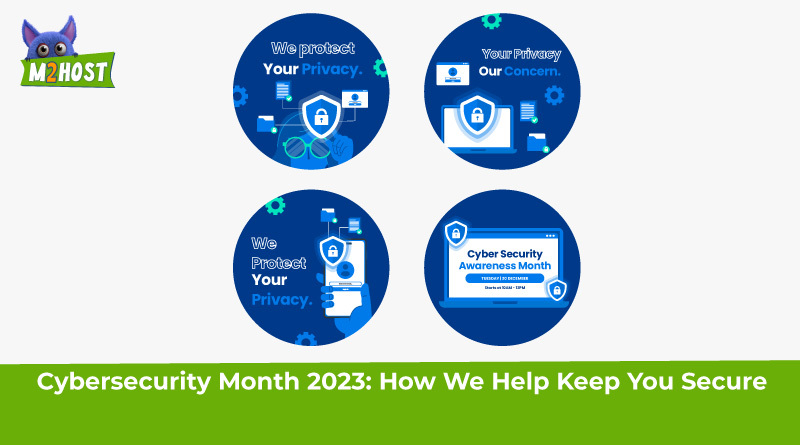People’s private information is increasingly out there for anyone to see as internet use continues to rise and more time is spent online. No matter the nature of the data being shared, if it gets into the wrong hands, it can compromise a great deal, including your identity. A strong defense against any form of cyber-attack is essential to the security of this private data.

The Importance of Cybersecurity
In today’s world, where most data are now kept online and can be accessed by anyone, cyber security is no longer a luxury but a necessity. The privacy policies of social media giants Facebook and search engine giant Google have been in the news recently. Data security is paramount, but it’s just as vital for businesses to know how to deal with the private data their customers entrust them with. When private information is compromised, it is no longer secure. Theft of financial data, company secrets, credit card numbers, etc., can result from hackers breaking into networks, systems, and accounts.
Essential Advice for Cyber Security
Some of the best advice for protecting your company’s data from hackers and other cyber threats is provided in the following sections of this blog.
Think Before You Click
If you want to keep your data safe, this is one of the most crucial Cyber Security email tips you can use. Be wary of clicking on links in emails, messages, or on insecure websites that you did not specifically seek out.
If they lead to malicious websites, you could end up losing a lot of money and having your life negatively impacted in other ways.
Hackers frequently use email links disguised as password recovery messages, bank statements, and other official-looking correspondence to gain access to your personal information. The phony websites that these links lead to look too much like the real ones, and that’s on purpose so that hackers can trick you into giving them your personal information and passwords.
Implement Password Security by Using Complex and Unique Passwords
One of the most crucial pieces of advice for online safety is this. While it’s tempting to use the same password for all of your online accounts because it’s simple to remember, doing so actually increases the risk of someone gaining access to your accounts. Each of your accounts requires its own unique password. If you follow this procedure, it doesn’t matter if a company you do business with is hacked or if hackers gain access to one of your account credentials; they won’t be usable on any other websites.
Use complicated passwords because they are crucial to your accounts’ safety online. The National Institute of Standards and Technology (NIST) has established password policy guidelines that can be used as a guide when creating secure passwords.
Avoid using the same password twice; include at least one uppercase letter, one lowercase letter, one number, and a few symbols other than &, #, _, @, etc.; make your passwords easy to remember; don’t make any hints about your password public; and reset your password frequently.
Employ a password manager program.
A password manager is useful if you find it difficult to keep track of all the different passwords you need to use for your various online accounts. One way to keep track of all your different login credentials is with a password manager. A single “master key” password will grant access to all of these individual passwords. This will help you maintain the safety of your credentials and discourage you from using the insecure practice of writing down your passwords. In today’s highly connected world, knowing how to protect yourself online and avoid becoming a victim of cybercrime is crucial.
KeePass, LastPass, 1Password, Dash lane, and RoboForm are just a few of the many popular password managers. Some of them are completely free, while others have both free and paid variations.
Add a second authentication method (or several) (MFA)
Normally, all you need to access your account is your user id and password, but the MFA service allows you to beef up the standard method of using passwords for online verification. You’ll be prompted to use a second form of authentication in addition to your password, such as a code, fingerprint, one-time password sent to your phone or email, etc. In order to log in using this method, you’ll need to provide a third piece of information in addition to your username and password. This is another crucial step you must take for cyber security.
Make it a habit to regularly check for CERT-In updates
Computer Emergency Readiness Team–India (CERT–IT) is an organization that prepares for and responds to technological disasters. It’s part of the Indian Cyber community and started up in January 2004. When it comes to cyber security, CERT-In is the go-to national agency for things like incident forecasting and alerts, emergency response actions for dealing with cyber events, and more. Therefore, keeping up with CERT-In updates is crucial in the event of a cyber emergency.
Keep Your Software Up-to-Date
One of the most important things you can do to protect yourself online is to always use the most recent versions of your software and operating system, as well as your web browser. This is one of the most crucial pieces of advice for both employers and employees when it comes to cyber security. Your company’s security firewalls, if it uses them, will also need to be updated. The longer hackers have to find and exploit vulnerabilities in an older system and its configurations, the more damage they can do. If you update them, hackers won’t be able to exploit them for a while.
Malware, viruses, phishing attacks, trojans, spyware, and other forms of network and system intrusion are just some of the ways hackers can gain access to your information. Fortunately, you can protect your system from malicious software and intrusion attempts by installing antivirus and firewall applications. You must keep your firewall or other security software up-to-date so that it can detect and stop potential cyberattacks before they can cause damage.
Firewalls, such as NGFW, NAT firewalls, etc., and antivirus software, such as McAfee, TOTAL AV, Norton, etc., can be used. You, as a user or employee, need Cyber Security awareness to ensure that your data is safe from any and all threats.
Don’t use a debit card online.
When it comes to cyber security, protecting your financial data while making payments online is one of your top priorities. Avoid using a debit card or any payment method that is linked directly to your bank account when making an online purchase of services or goods. Instead, safer options like PayPal and credit cards can be used to make purchases online.
Educate Yourself on Phishing Scams
The goal of a phishing attack is to get you to reveal sensitive information (such as login credentials), visit a malicious website, or download and run malicious software. A ransomware attack may result from this.
The following are some precautions you can take to avoid falling victim to a phishing scam:
- Do not respond to emails from strangers.
- Check for any grammatical errors and the id of the sender
- Educate your friends and family about such errors so that they avoid opening such emails or forwarding them to you without any knowledge of the error
- Hover over the links before clicking to figure out where they direct, and if the link seems unsafe, do not click it.
Stay Away from Strange Websites
Be wary of checking out unfamiliar websites that your friends or complete strangers recommend, as they might be hosting malware that will download onto your computer without you even realizing it.
In this attack method, the user takes no active part in allowing the computer to become infected. As soon as you visit the website’s link, it launches an attack on your computer by installing malicious software. In this light, it is prudent to avoid such sites in favor of those you already know and trust.
Download Only What You Need
Attackers and hackers frequently employ the practice of downloading malicious software in order to penetrate your computer systems and networks. In order to protect your computer and data from potential threats, you should limit the number of files you download. Avoid installing browser add-ons and additional software unless absolutely necessary. In the workplace, employees need approval before installing any software from the internet.
You can improve your online safety by downloading only from trusted sources and always using the custom installation option when installing anything. You should dismiss any prompts to install extensions or add-ons that may appear during the installation process.
Always use caution when posting on social media.
Yes, in the current digital era, we can easily reconnect with old friends and family members by using online social media sites like Facebook, WhatsApp, LinkedIn, etc. However, you should be cautious about the information you share with them online. Social media profiles and pages are a gold mine of information for hackers. Since hackers can easily access information posted online, it’s important to be cautious about how much personal data you reveal.
Routinely back up your data.
A backup is simply an offsite copy of your files or network’s data in case you ever need to restore them. Data loss and corrupted files are possible outcomes of cyber-attacks. Paying the ransom is no guarantee that the attackers will return the data. As a result, it is crucial to regularly create backups of your data in order to lessen the impact of any data loss caused by hacking attempts.
Avoid Using Public Networks without a VPN, Especially
Use a Virtual Private Network (VPN) in addition to public Wi-Fi to protect your privacy and security. A virtual private network (VPN) encrypts the data sent to and from a server, making it impossible for anyone to spy on your device. This makes it more difficult for hackers to access your device and steal your data. You should connect to the internet through a mobile network or some other means other than a virtual private network (VPN) if you do not have a VPN installed on your device.
Secure your data
Cyber Security is essential if you want to keep your data safe from intruders and other outside influences. If you’ve read this blog, you’ve already learned some of the best advice available for protecting your data and infrastructure from cyber criminals. Applying for our Cyber Security program will allow you to acquire in-depth knowledge of this area of IT, allowing you to better understand the attacks and how to stop them.
Conclusion
You should now have a firm grasp on the various precautions you can take to keep your system and network safe. We discussed how measures like CERT-In updates, firewalls, antivirus software, and backups could lessen the severity of the damage done by cyberattacks. The prevalence of malware, suspicious links, trojans, etc., online-only highlights the significance of the aforementioned safety measures. You can now protect your system from cyber threats using the aforementioned recommendations.


